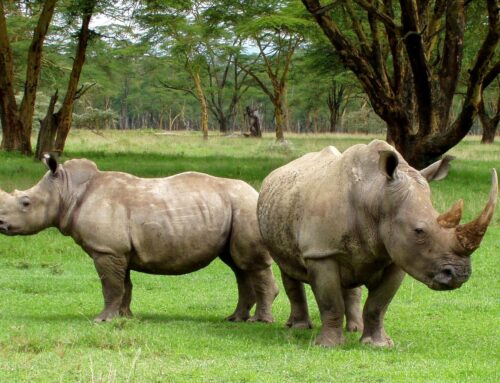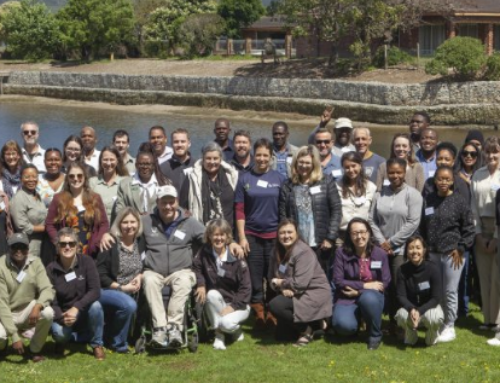The Tsitsa Project is being implemented in the communal and commercial areas of the north-eastern Eastern Cape. The Department of Environment, Forestry and Fisheries (DEFF) working with local authorities and traditional leaders, conducts land restoration in the highly erodible Tsitsa river catchment, while a number of South African universities conduct related research in this remote rural landscape. Rhodes University has been contracted by DEFF to provide support on various research-praxis aspects to the project. This is done through numerous ‘Communities of Practice’ (CoP) which bring together researchers, managers, and local residents to jointly develop knowledge and action for integrated landscape management. The Knowledge and Learning CoP (KL CoP) coordinates capacity development, knowledge management, and Participatory Monitoring, Evaluation, Reflection and Learning (PMERL) research and support for the project. The KL CoP is co-hosted by the Environmental Learning Research Centre, and the Department of Environmental Science at Rhodes University.
The Tsitsa Project wishes to appoint a new team member to work in the KL CoP to provide Knowledge and Learning Support: to assist with Data & Knowledge Management and Participatory Monitoring, Evaluation, Reflection & Learning (PMERL) (full time one-year position)
There is a possibility of splitting the Knowledge and Learning Support position into two part-time positions: one to support Data & Knowledge Management, and one to support PMERL.
The incumbents will be based at Rhodes University in Makhanda, in the Eastern Cape. Here they will join a vibrant transdisciplinary research community with a strong commitment to just social development and ecological sustainability. We work with some of the best scholars globally and nationally, and we also deeply value our close connections with rural communities.
If you are interested in this position and in working in such a context, please send a CV and a two-page motivation as to why you can and want to do this work, to the Tsitsa Project Coordinator Margaret Wolff, M.Wolff@ru.ac.za.
Queries about the terms of reference may be directed to Prof Eureta Rosenberg, E.Rosenberg@ru;ac.za or Dr. Jessica Cockburn, J.Cockburn@ru.ac.za.
The closing date for expressions of interest is 14th February 2020. Appointments are to be made during February-March, to commence on 1st April 2020. Note: the Assistant position is a one year contract (1st April 2020 to 31st March 2021 – Cost to company R284 845.00).
For information on the Tsitsa Project aims and scope, please refer to the list of literature and documents below, and the Tsitsa Project website: https://sites.google.com/view/tsitsa-project/home
KNOWLEDGE AND LEARNING SUPPORT:
Data & Knowledge Management
and
Participatory Monitoring, Evaluation, Reflection & Learning (PMERL)
The Knowledge and Learning Support position includes providing assistance on the following key aspects of work in the Tsitsa Project:
1. Data and Knowledge Management
The broader Tsitsa programme produces data, research and organisational development products that need to be collected, curated, and mediated internally among project participants, and made available for interested external parties. The aim is to optimise the value of research, organisational development and learning about integrated landscape management and rural development, locally, nationally and internationally.
Knowledge and Learning CoP: Opportunity to Join the Tsitsa Project Team
The role of Data and Knowledge Management support includes organising and curating current data and knowledge products being produced within the Tsitsa Project and by partners in the wider network; setting up data storage and access processes for project participants; managing new in-coming data; and assisting the Project Co-ordinator and the KL CoP with a range of on-going communication, knowledge sharing and data management processes within the project. The kinds of data which the Tsitsa Project works with is inter-disciplinary and includes qualitative narrative data, quantitative data, spatial data, and various organisational documents and sources of information. An interdisciplinary background in social-ecological research (or similar) and technical knowledge of databases, GIS and websites would be an advantage. The appointee will support implementation and refinement of the existing Tsitsa Project Knowledge Management Strategy.
2. Participatory Monitoring, Evaluation, Reflection and Learning (PMERL)
The Tsitsa Project strives to embody a strategic adaptive management approach; it is also a pilot project for new, transdisciplinary approaches in research-based restoration and livelihoods development. For both these reasons, it requires an innovative approach to monitoring and evaluation that combines monitoring against and feedback from a variety of social and bio-physical indicators, with trans-disciplinary synthesis, collective reflection and meaning-making to guide project actions and share lessons learnt more broadly. Participants in the PMERL process range from citizen monitors in the catchment, to researchers, restoration project managers and DEA officials.
The role of PMERL support will be to work closely with the PMERL team to implement and refine the guidelines already developed (see Botha et al., 2017 and Rosenberg & Human, 2018), and engage with the Tsitsa Project participants, to ensure that relevant monitoring and reporting takes place and is well supported with tools and guidelines. The assistant will work with the PMERL coordinator to create opportunities for reflection on findings, for the documentation of insights, and for producing high quality meta-level reports to further support organisational learning, internally and externally.
Nature of Position: Full-time one year contract (1st April 2020 to 31st March 2021) (could potentially be two part-time positions).
Available: From 1 April 2020.
Qualification: Masters degree or equivalent, with experience in interdisciplinary social-ecological research or similar.
Report to: Ms Margaret Wolff (Tsitsa Project Coordinator) and Prof Eureta Rosenberg.












